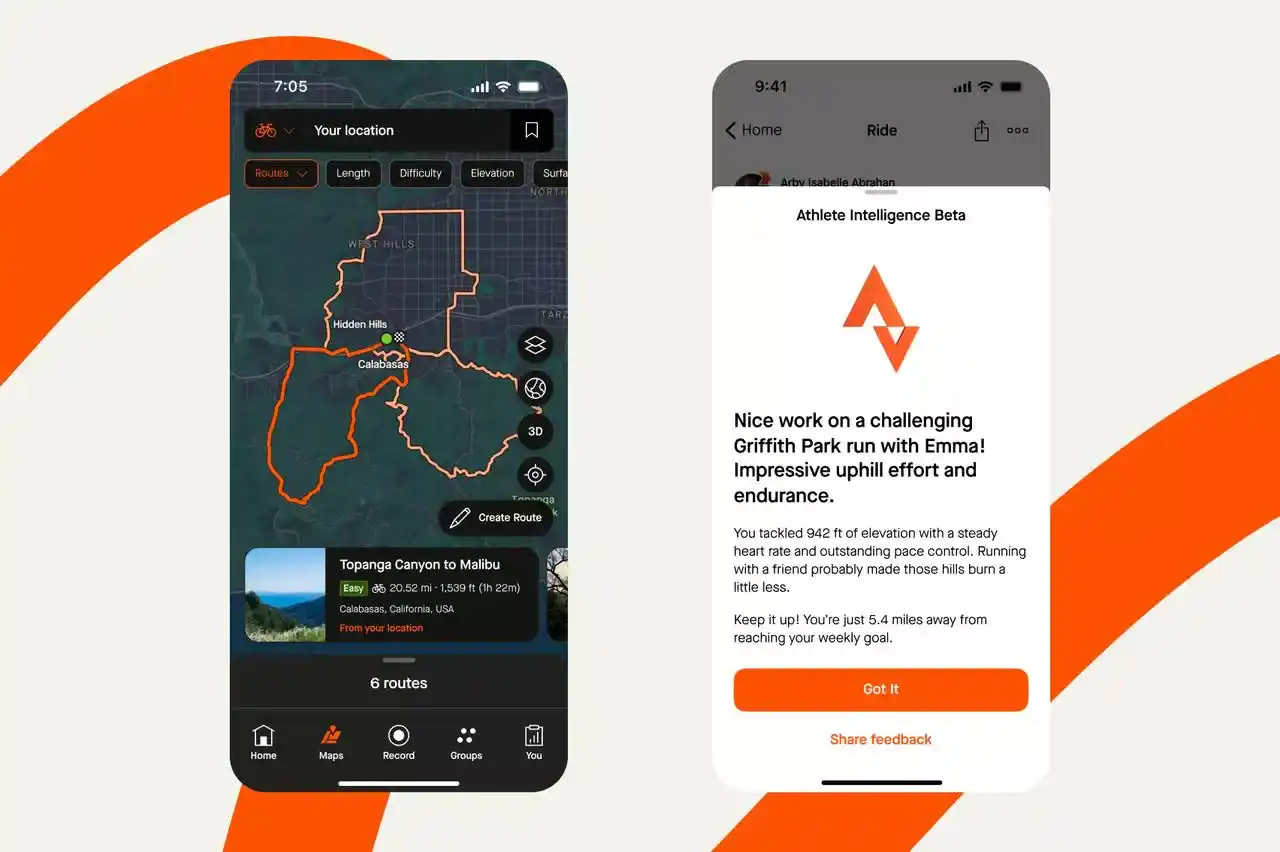Table of Contents
Strava, the leading social network for athletes, is making waves with a suite of new features powered by Artificial Intelligence (AI). This exciting development signifies a “two-fold shift” in the company’s strategy, with a strong emphasis on leveraging AI and fostering a more inclusive environment for women.
New Anti-Cheating Features:

One of the most anticipated additions is AI-enabled Leaderboard Integrity. Leaderboards, a core Strava feature, showcase user performance on specific segments (timed sections of routes). These segments are a popular way for athletes to challenge themselves and compare their times with others. However, the lack of verification has opened doors for potential cheating, with some users manipulating data to inflate their standing. Strava’s AI will now address this issue by analyzing vast amounts of historical data to identify patterns and anomalies. This will help flag suspicious times that deviate significantly from what’s considered achievable on a particular segment, ensuring a fairer and more rewarding experience for genuine athletes who compete within the boundaries of the sport.
Benefits for Athletes:
Strava isn’t just cracking down on cheating; it’s also using AI to empower athletes with the new Athlete Intelligence feature. This innovative tool provides users with a comprehensive analysis of their training data, presented in an “easily digestible summary.” Here’s what makes Athlete Intelligence so beneficial:
- Multi-Sport Compatibility: Unlike many training analysis tools that focus on a single sport, Athlete Intelligence considers data across various disciplines. Whether you’re a runner, cyclist, swimmer, or participate in other activities supported by Strava (like hiking, skiing, or yoga), Athlete Intelligence takes all your training efforts into account. This holistic view provides a more complete picture of your fitness level and progress.
- Contextualized Insights: Athlete Intelligence doesn’t just present raw data; it contextualizes your achievements and goals. This means the AI analyzes your training history, including factors like intensity, duration, and recovery periods, to provide insights tailored to your specific fitness journey. For example, Athlete Intelligence might highlight a recent improvement in your cycling speed or endurance, or it could suggest areas for improvement based on your training goals.

Building a Platform for Women:
It is committed to building a more inclusive platform, with a particular focus on catering to female athletes. This commitment is reflected in several new features:
- Night Heatmap: This heatmap highlights popular routes specifically during nighttime hours, addressing a safety concern often voiced by women who train before sunrise or after sunset.
- Quick Edit: This feature allows users to easily edit activity details like name and visibility, providing more control over their Strava experience.
- TOGETHXR Partnership: Strava has partnered with TOGETHXR to promote women’s sports, encouraging users to watch and participate in these events.
Additional Enhancements:
Responding to popular demand, Strava is introducing a much-requested Dark Mode. This user interface option offers a visually appealing aesthetic that many users prefer, particularly in low-light environments. Dark Mode can also potentially improve battery life on some devices by reducing the power consumption required to illuminate bright white elements on the screen.
It is also introducing a new Family Subscription Plan, enabling users to share a subscription with up to three additional people. This plan is a cost-effective way for families or groups of friends who all use Strava to access premium features at a discounted rate. The Family Subscription Plan will have a limited rollout initially, allowing Strava to gather feedback and optimize the offering before expanding globally by the end of the year.
Strava Subscription Price:
It offers a free tier with basic features. However, for access to advanced features like customizable training plans, detailed performance analysis, and in-depth route insights, a subscription is required. While specific pricing may vary by region, Strava subscriptions typically range from around $5 to $12 per month.
Strava’s embrace of AI and its dedication to creating a more welcoming environment for women position the platform for continued growth and success. These developments promise to benefit athletes of all levels, fostering a more competitive, informative, and inclusive experience for the global Strava community.